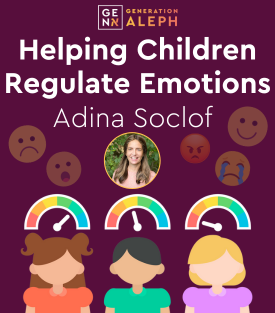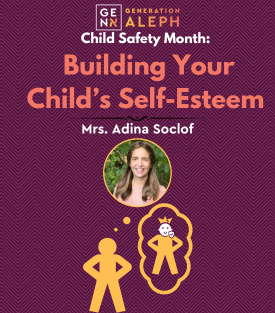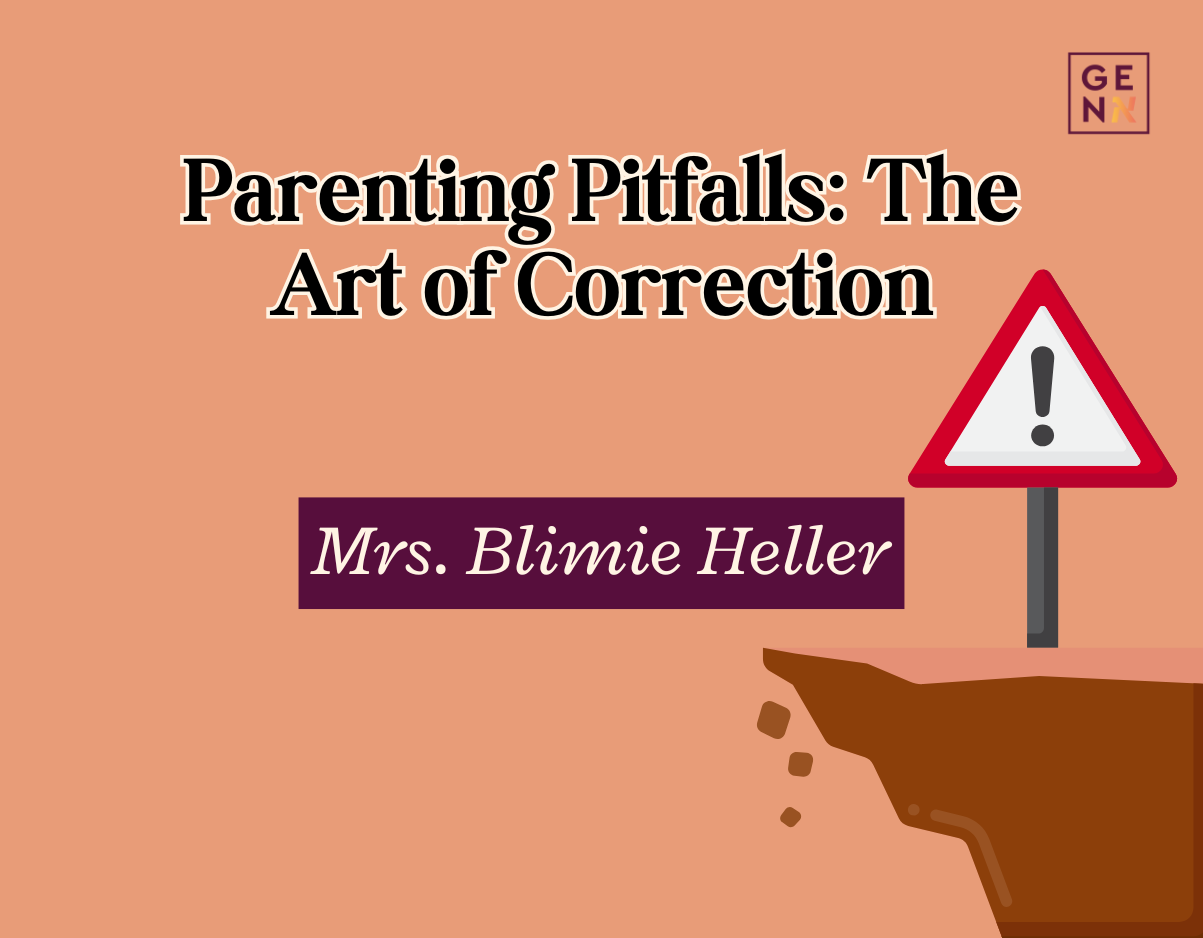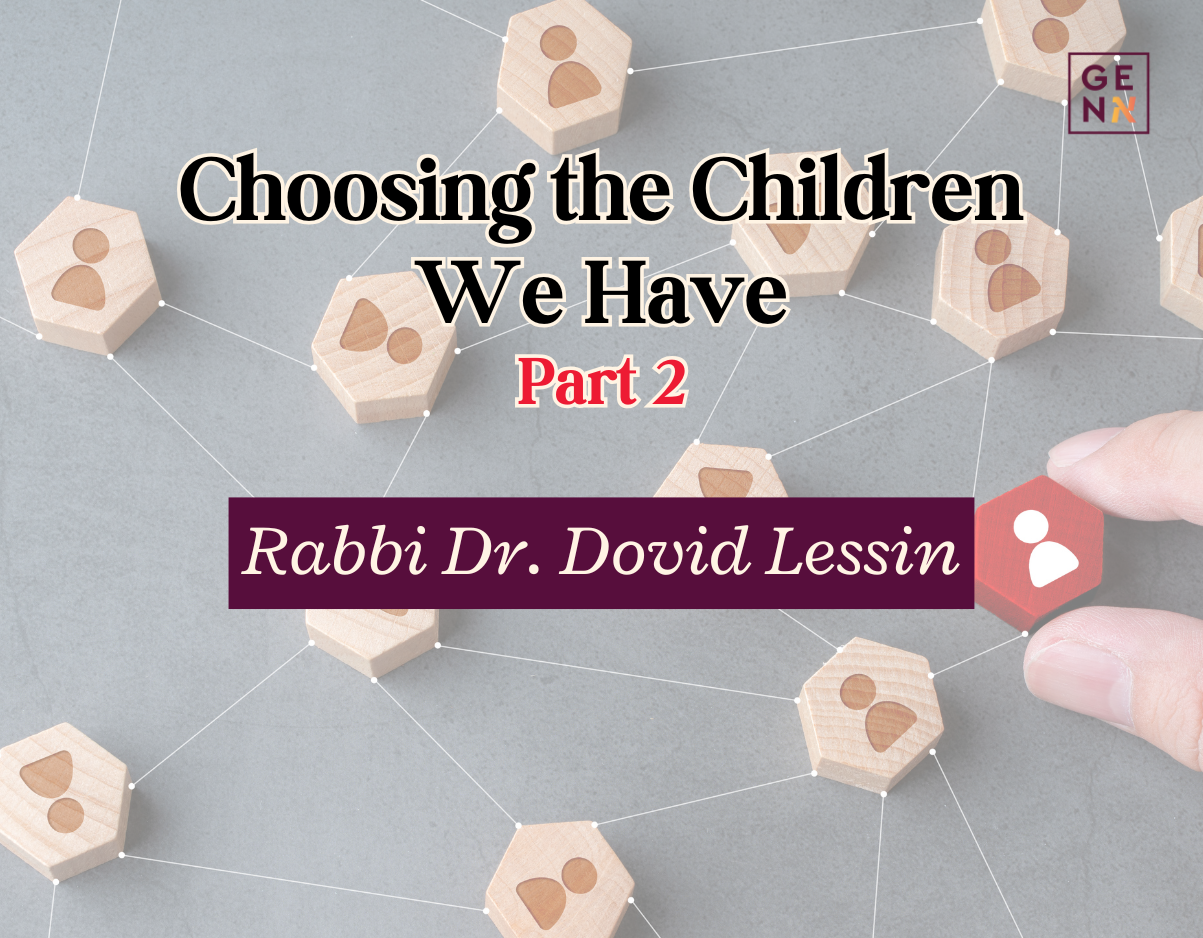Thus far the Sugya of Ben Sorer U’Moreh has yielded some incredible parenting strategies and thought provoking ideas. Let us once again examine these wonderful pesukim in order to learn how we can best build a Torah home.
כִּי־יִֽהְיֶ֣ה לְאִ֗ישׁ בֵּ֚ן סוֹרֵ֣ר וּמוֹרֶ֔ה אֵינֶ֣נּוּ שֹׁמֵ֔עַ בְּק֥וֹל אָבִ֖יו וּבְק֣וֹל אִמּ֑וֹ וְיִסְּר֣וּ אֹת֔וֹ וְלֹ֥א יִשְׁמַ֖ע אֲלֵיהֶֽם
If a man has a wayward and rebellious son, who does not obey his father or his mother, and they chasten him, and [he still] does not listen to them (Devarim 21:20)
Above we translated the words אֵינֶ֣נּוּ שֹׁמֵ֔עַ בְּק֥וֹל אָבִ֖יו וּבְק֣וֹל אִמּ֑וֹ, as the Ben Sorer U’Moreh does not “obey” his father or mother. A more literal translation would be he does not hear their voice. The Chasam Sofer says that these two translations work together. The child does not obey the parents because the parents themselves do not live the values they are preaching. The Kol Torah, the beautiful sound of Torah being learned, the Kol Teffilah, the passionate sound of prayer, has been noticeably absent from the home in which the Ben Sorer U’Moreh were raised.
In 1979 Job’s early mentor Mike Markkula wrote him a memo, a one-page paper entitled “The Apple Marketing Philosophy” that stressed three principles. The first two were “empathy” (an intimate connection with the feelings of the customer) and “focus” (eliminating unimportant opportunities). The third was an awkward word, “impute”, but it became one of Jobs ‘s key doctrines. It emphasized that people form an opinion about a product or a company based on the signals it conveys. How products are presented and packaged teach the customer about the values of the company. Jobs said, “Mike taught me that people do judge a book by its cover. We may have the best product, the highest quality, the most useful software etc… if we present them in a slipshod manner, they will be perceived as slipshod; if we present them in a creative, professional manner we will impute the desired qualities.” All the trappings and packaging of Apple signal that there is a beautiful gem inside. Apple customers knows the feeling of opening up the well-crafted box and finding the product nestled in an inviting fashion.
Apple does not need to deliver speeches on their company’s values. Apple users know that they believe in making products are simple to use and simple in design because that’s what they do. Their values have been imputed from the way that their products are packaged and presented. Parenting is no different. We cannot tell our children, “Do as I say, not as I do.” Children do not know how to navigate the world. They look to us for direction and to paraphrase Emerson, what we do speaks so loudly that our children cannot hear us. They won’t obey our instructions because the voice of what we do has already charted their path. They imputed our values well before we opened our mouths.
In the late 1980’s the Partnership for a Drug-Free America released a thirty second PSA commercial entitled “Like Father, Like Son” that went viral for its time. The commercial begins with a young man sitting in his bed, eyes closed, headphones on, drumsticks in his hand and swaying his head to the beat of the rock music that was playing. Like I said, it was the 80’s and this was a classic 80’s scene. Dad walks in, turns the stereo off, and confronts his son with a box of marijuana. Dad asks his son if it his and the son denies it. “Your mother said she found it in your closet” dad counters. The son responds, “I don’t know. One of the guys must have…” but before he can finish his sentence, dad cuts him off and says, “Must have what?” The son now more emphatically denies, “But dad its not mine” to which dad immediately parries by asking, “Where did you get it?” The son cries out “Dad I…” and again the father cuts him off demanding, “Answer me! Who taught you how to do this stuff?” The son angrily looks at his father and screams, “You alright! I learned it by watching you!” Dad shamefully looks down as he realizes that it was his own drug use that taught his son to use drugs. The commercial finishes with an ominous voice over which says, “Parents who use drugs have children who use drugs.” Time listed this commercial as one of the top ten PSA’s of all time. The phrase “I learned it by watching you” caught on and teenagers across America would mockingly shout, “I learned it by watching you” to anyone who accused them of anything. I was only seven years old and I remember shouting the tag line. Even today, my wife and I will sometimes say to each other jokingly, I learned it by watching you! And while the commercial may have become a joke, the message is certainly true.
I am on a whatsapp group with Jewish educators from around the globe who share resources and discuss different Chinuch ideas. The question was asked, “Any suggestions of how to inspire meaningful Tefillah in high school?” And “What have people done or said to help Talmidim with Tefillah?” Many interesting responses and approaches were offered but three people responded similarly.
“A very large issue is that most of their parents find no meaning or connection in davening so the kids have not had real familial role models. How many of them have seen people who truly connect and care about davening?”
“It is unlikely that students have seen genuine Tefilla from adults.”
“Many lack Tefillah role models. I had a student who once said the source of his Emunah was seeing the way his father davened. Not sure how common that is nowadays.”
Davening is difficult and we need to think innovatively and creatively as to how we can inspire this generation in light of the obstacles these kids are faced with. Having said that, there is no more powerful message for a child then to see how their parent davens. Children naturally mimic the behavior of the parents. It’s how they learn to negotiate this world. And while we can and should make Teffilah education a priority, there is no substitute for a child who is inspired by watching his father daven with Kavanah. Similarly, if we want our children to learn Torah, we would be well advised to allow our children to see us learning. Though the Beis Medrash may be the most natural place to learn, perhaps our children would be best served if they see us learning in our own homes. Or at least let them see us leave to go to the Beis Medrash. I watch with amazement as my now thirteen-year-old nephew Ovadiah learns the Daf Yomi. He’s been doing so since he was ten! It’s amazing but not surprising. It’s what he sees his father doing. It’s what his father talks about. He does not need to instruct his son to learn, his passion for the Daf permeates his home. In fact, in my nephew’s Bar Mitzvah speech, he called me out for not doing the Daf. (It seems that this is what he does all the time. And yes, if your’e wondering if he learns the Daf with Rav Eli Stefansky, you are correct.)
I do not mean to suggest that Chinuch is limited to role modeling, nor do I believe that this is as simple as monkey says monkey do. There are a myriad of factors that go into how and why our children make the decisions that they do and many parents who Daven with Kavanah and learn with Hasmada have children who have not made those same choices. And yet, we cannot discount the reality that our homes must be places where our values are lived if we want to transmit them to the next generation. Parenting is often about turning inward and creating the change you want to see in your children in yourself. At the Pesach Seder we speak about the son who does not know how to ask. We are advised “at ptach lo” we must open him up. The Chasidic Masters explains this differently. We must open ourselves up, look at our own ways of being, and this will in turn influence our children’s behavior.
Rav Mordechai Burg is the Menahel of Mevaseret, Mashpia of NCSY Summer, Mashpia of Nitzotzos, author of Nitzotzos on Chumash and a senior Rebbe at Tomer Devorah and Bnot Torah Institute. His shiurim can be found on Nitzotzos.com.
Submit your questions
"*" indicates required fields











